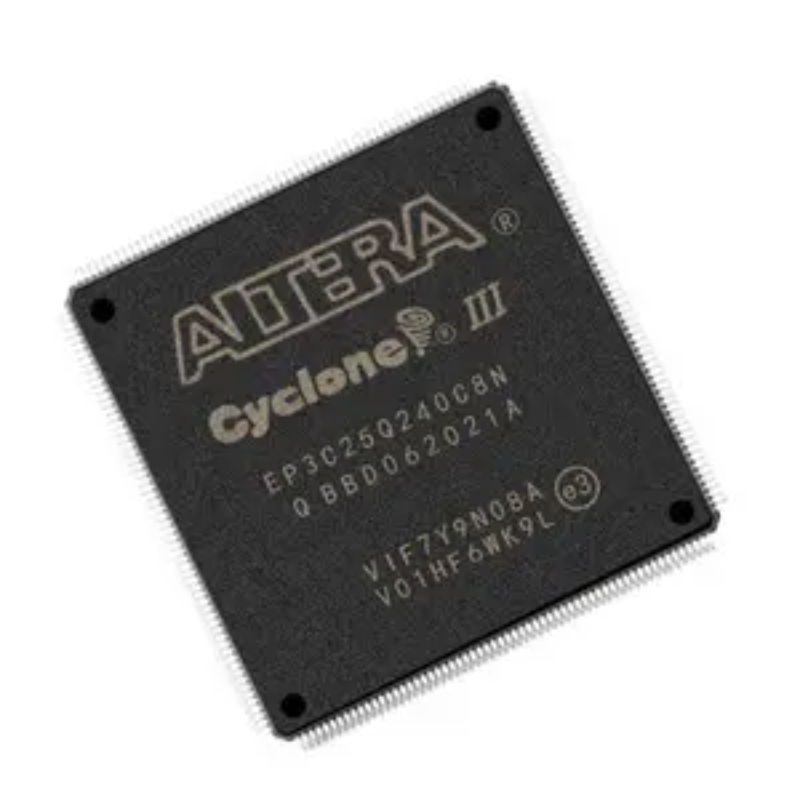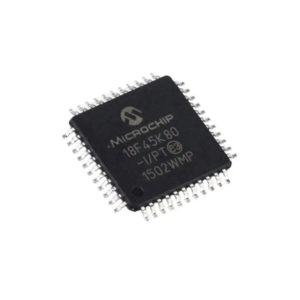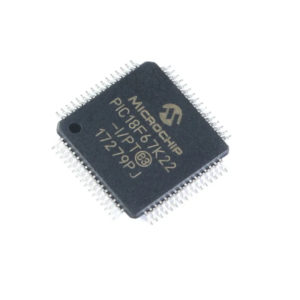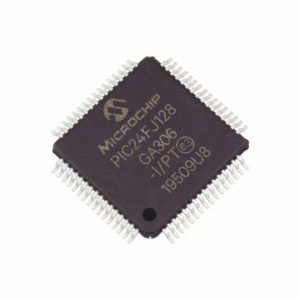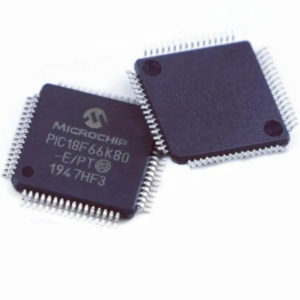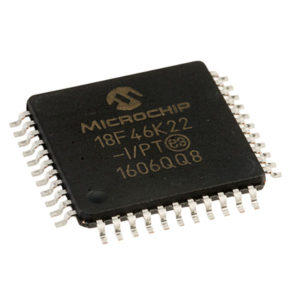EP3C25Q240C8N
| Manufacturer | Altera |
| Description | IC FPGA 148 I/O 240QFP |
| Category | Integrated Circuit |
| Package | PQFP-240 |
| Status | New & original |
| Ship From | HK/SHENZHEN |
| Stocks | 10,000 |
Please submit your BOM List or Input the part online
Description
The EP3C25Q240C8N is a specific model of FPGA (Field-Programmable Gate Array) from the Cyclone III family, manufactured by Intel (formerly Altera). This FPGA offers 25,000 logic elements and 240 user I/O pins, along with other features such as embedded memory, PLLs, and high-speed transceivers.
FPGAs like the EP3C25Q240C8N are versatile integrated circuits that can be programmed to perform various tasks and functions. Some of the common applications where this FPGA model can be utilized include:
1. Embedded Systems: FPGAs are commonly used in embedded systems for tasks such as system control, interfacing with peripherals, and implementing custom hardware accelerators. They offer flexibility and can be tailored to meet the specific requirements of the embedded application.
2. Industrial Automation: FPGAs find application in industrial automation systems for tasks such as process control, motion control, and monitoring. They can interface with sensors and actuators, implement control algorithms, and provide real-time processing capabilities.
3. Robotics: FPGAs are utilized in robotics for tasks such as motor control, sensor fusion, and real-time decision making. They offer the ability to process sensor data and control actuators with low latency, enabling precise and responsive robotic systems.
4. Internet of Things (IoT): FPGAs can be used in IoT applications for tasks such as data processing, sensor integration, and communication. They can handle the complexities of IoT data streams, perform real-time analytics, and interface with different communication protocols.
5. Audio and Video Processing: FPGAs find application in audio and video processing systems for tasks such as audio/video encoding and decoding, image processing, and real-time video analytics. They offer parallel processing capabilities and can handle high-speed data processing required in multimedia applications.
6. Medical Devices: FPGAs are utilized in medical devices such as patient monitoring systems, medical imaging equipment, and diagnostic instruments. They enable real-time signal processing, data analysis, and integration with various sensors and peripherals.



















































